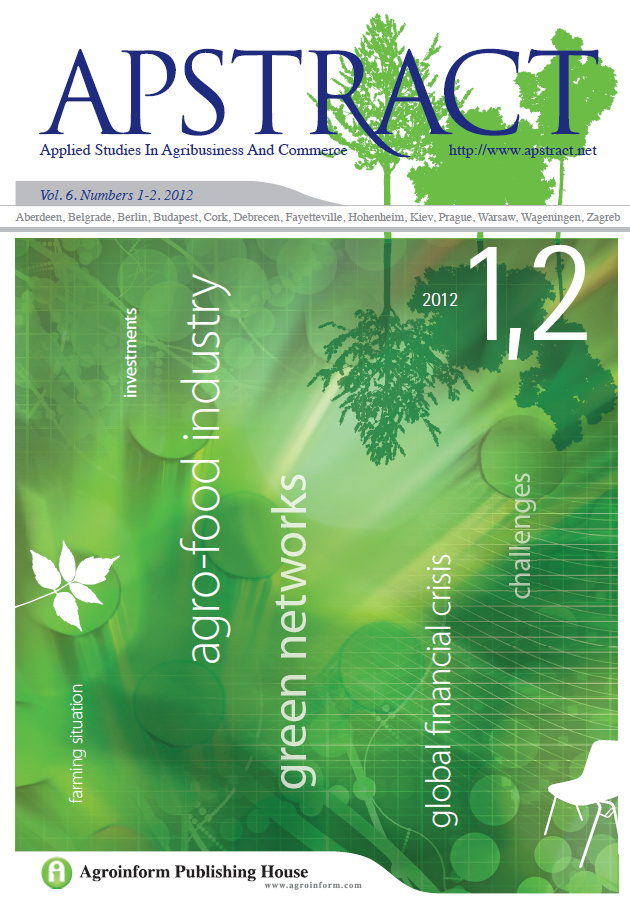The role of agribusiness in stimulating on-farm investments – case-study of the armenian dairy sector
Authors
View
Keywords
How To Cite
Abstract
This paper analyses the impact on investments of contractual arrangements between farms and agribusiness in the Armenian dairy sector. Our empirical evidence is based on a unique survey of 300 Armenian dairy farms. The dairy sector is of particular importance as it provides vital employment and income, in an environment of weak social security and scarce job opportunities. Furthermore, milk production is predominantly organized in small-scale farms, which are most likely to be affected by adversarial financial conditions and limited in their opportunities to raise resources to invest. The results show that a large share of milk producers in Armenia is actively investing to upgrade their farm business. Furthermore, investment activity is not limited to large dairy farmers as over 30% of respondents with less than eight cows have made dairy-specific investments. We find that the linkages between farms and agribusiness – and more specifically the support programs that agribusiness firms offer to their suppliers – have been crucial in stimulating this restructuring process at the farm level. Interestingly, farmers with a more exclusive relationship to the buyer and farmers that deliver to more internationally oriented buyers are more likely to receive support. On the other hand, buyers that operate in a more competitive market are less likely to provide support to their suppliers. These findings have interesting policy implications. On the one hand, our results point to the gains that can be made from openness to international firms. On the other hand, the negative competition effect indicates that buyers are unable to enforce repayment of the provided farm services in an environment where a lot of buyers are competing for the same supply. Policy makers should look at ways of improving the enforcement capability of dairy companies under these circumstances.


 https://doi.org/10.19041/APSTRACT/2012/1-2/11
https://doi.org/10.19041/APSTRACT/2012/1-2/11




